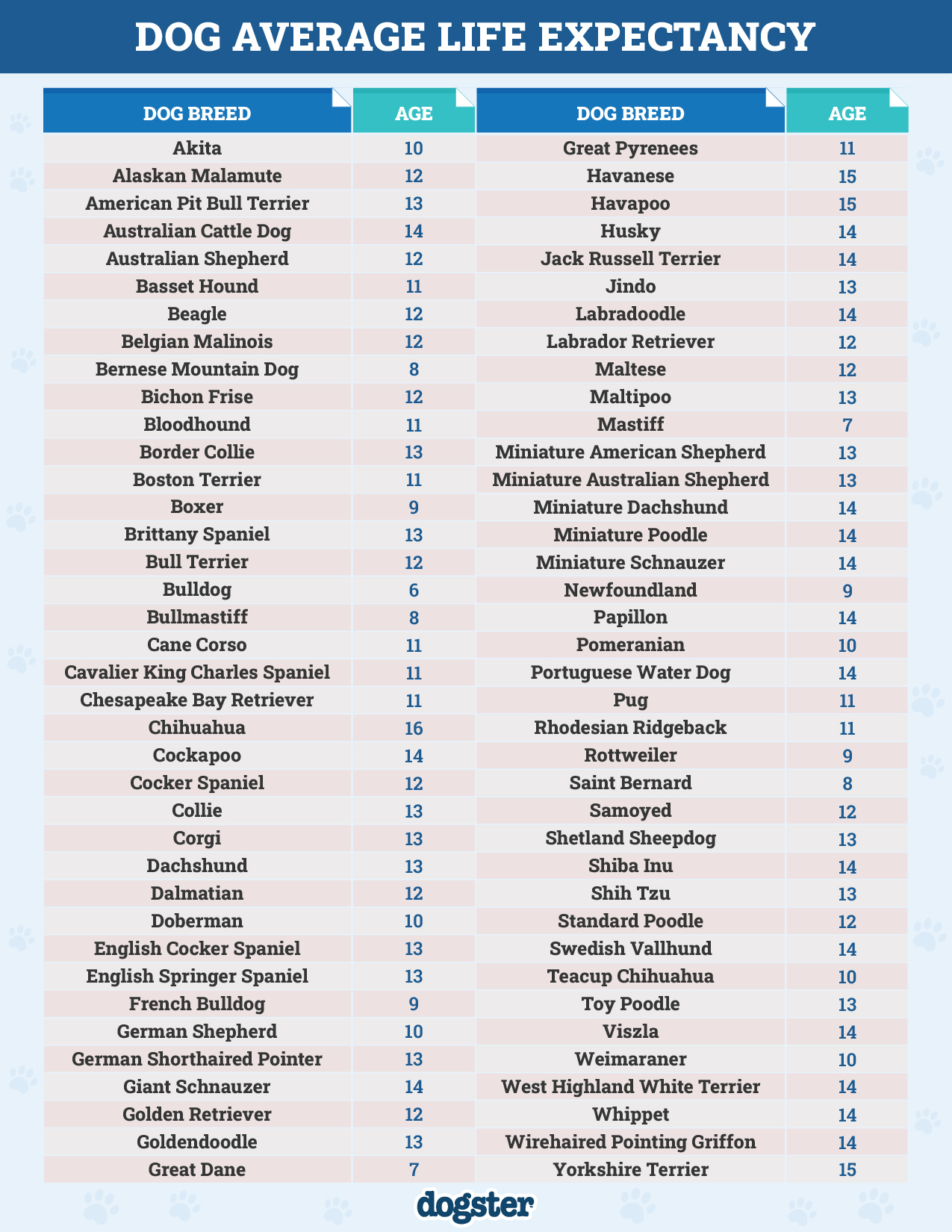In this article
Cocker Spaniels are medium-sized dogs that were once bred to hunt but have transitioned well into wonderful companion dogs. They appreciate playtime in the yard just as much as they do cuddles on the couch—if it pleases you, it pleases them. They are highly adaptable and trainable and make excellent additions to any family they join.
If you’re considering getting one of these dogs, you might wonder how long they live. The short answer is that Cocker Spaniels live for up to 15 years, and the longer answer involves a few factors. Let’s take a closer look at them now!

What’s the Average Lifespan of a Cocker Spaniel?
When looking at the lifespan of the Cocker Spaniel, first, you need to be a little more specific because there are two breeds: the American and English Cocker Spaniels. On average, the American Cocker lives 10–14 years, while the English Cockers live for 12–15.
These are just averages; some will live longer or an even shorter time, which will be affected by factors you can control and others you can’t. It’s essential to be aware of what impacts a Cocker Spaniel’s lifespan since it can affect your decision about whether or not you bring one of these dogs into your family.

Why Do Some Cocker Spaniels Live Longer Than Others?
1. Genetics and Health Conditions
Just like other breeds, the Cocker Spaniel is prone to specific health conditions that could shorten their lifespan. For example, because of the long floppy ears, we are so familiar with, they are prone to ear problems. This can mean anything from ear mites to yeast or bacterial infections. They can even have debris inside them, like grass seeds, which can cause irritation and pain.
The solution to this problem is to check their ears regularly, keep them clean, and take them to the veterinarian as soon as you notice anything unusual, like an odd smell or discharge.
- Hereditary eye problems
- Hip dysplasia
- Luxating patella
As we mentioned, it isn’t set in stone that all Cocker Spaniels will develop everything their breed is prone to, but the flip side is that they can also develop other health problems that aren’t on this list. Keeping up to date with your scheduled vet visits greatly affects your dog’s quality of life and lifespan. Many medical conditions are treatable and can be managed easily, especially when caught early.

2. Nutrition
Adult Cocker Spaniels should ideally be 14–15.5 inches tall and weigh around 25–30 pounds. The diet that you choose can make a big difference in a dog’s lifespan; A lack of food or too much can result in malnutrition or obesity, both of which then lead to a plethora of other health problems that can shorten your Cocker Spaniel’s life.
You can purchase a high-quality, nutritionally balanced brand with real meat as the first ingredient to keep your dog healthy. Dog food with unnecessary fillers, preservatives like BHA and BHT, and artificial colors should be avoided. Treats should also be served in moderation and only account for 10% of their daily caloric intake. A veterinarian can recommend a quality brand to feed your Cocker Spaniel if you’re having issues finding the ideal food.
If you need to speak with a vet but can't get to one, head over to PangoVet. It's our online service where you can talk to a vet online and get the personalized advice you need for your pet — all at an affordable price!

3. Exercise
They might be small, but Cocker Spaniels need plenty of exercise; they require at least an hour a day, which can be spread out into more than one walk and playtime in the yard to challenge them. They will also need access to a secure area for some off-leash time to explore and sniff.
Cocker Spaniels are an agile breed, so they do well with agility training. Exercise is essential for your dog’s mental and physical health. Not only will plenty of exercise keep them fit, but it will also keep their minds active. Boredom can develop into stress and anxiety and present as undesirable behaviors, like destroying furniture or barking.

4. Living Environment
Your Cocker Spaniel will rely on you for everything, including creating a safe, comfortable environment. Cocker Spaniels are known to suffer separation anxiety when left alone for too long, which can cause them to bark excessively. Still, more seriously, stress can cause health problems like a weakened immune system, skin problems, poor digestion, and exacerbate existing illnesses.
5. Lifestyle
Your lifestyle is an important factor to consider when getting a pet—if you don’t spend much time in the house and hate going out for walks, the Cocker Spaniel is not for you. Additionally, Cocker Spaniels enjoy spending time with their owners, are adaptable to any living situation as long as they can work off their pent-up energy, and do well with any family.
If you have other pets and children, Cocker Spaniels are an excellent choice as long as they have been socialized early.


The 3 Life Stages of a Cocker Spaniel
Puppy and Young Adult
Your Cocker Spaniel is considered a puppy until they are 1 year old; it’s vital to pick a suitable diet, as it will meet all of their developmental needs. They will typically reach sexual maturity by the time they are 6 months old but won’t reach their full size until they are a year old.
When they finish growing, they are considered young adults. This means they’ll look like adults but still act like puppies.
Adult
Once they are 3 or 4 years old, your Cocker Spaniel will have calmed down significantly; they will be slightly less energetic and less mischievous than they once were. As they age, you might notice some minor health conditions begin to develop.
Senior
Generally, your Cocker Spaniel will reach their senior stage when they turn 10 years old, although every dog is different. You will notice that they start to slow down and sleep more, and the likelihood of developing health problems will increase. It’s, therefore, essential to keep up to date with their scheduled vet visits.

How to Tell Your Cocker Spaniel’s Age
Determining your Cocker Spaniel’s age can be tricky unless you have bought them from a breeder, in which case there will be documents to tell you their age. If you have adopted your dog, there are ways to estimate how old they are.
Your veterinarian can help you do this—they will look for certain signs, like the condition of their teeth, cloudy eyes, damaged or missing teeth, and reduced mobility. Without documents, your vet cannot predict the exact age, but it should give you a rough idea of how old they might be.


Conclusion
Cocker Spaniels live to be around 15 years old, but many factors can affect this number. You can’t control some things, such as genetics and which health problems they are prone to. But there are also ways you can help your Cocker Spaniel thrive and remain healthy, like keeping up to date with scheduled vet visits and taking care of them properly.
We can’t predict how long we will get with our beloved pets, but we can ensure they live as long as possible.
See also:
Featured Image Credit: andriano.cz, Shutterstock






















